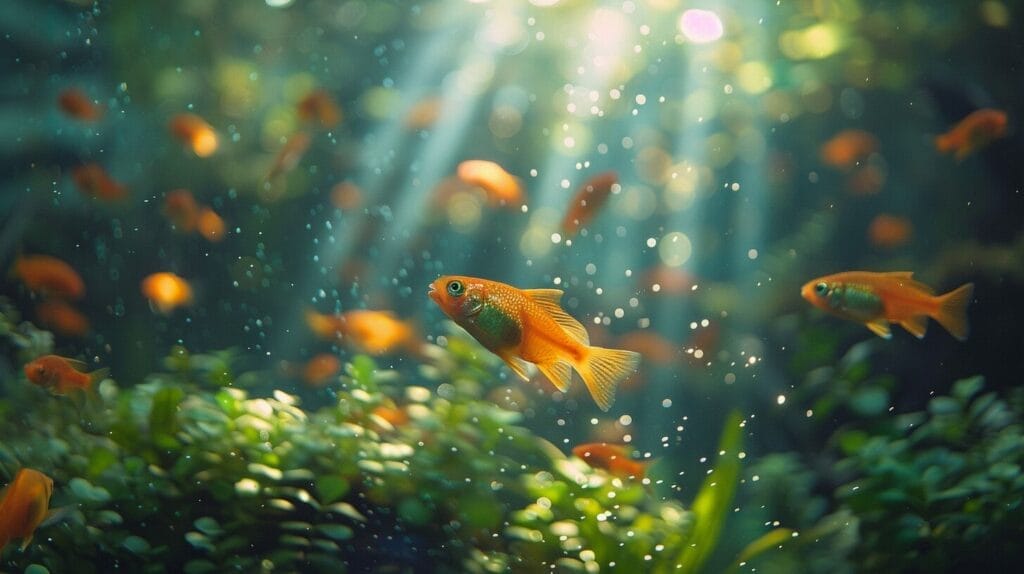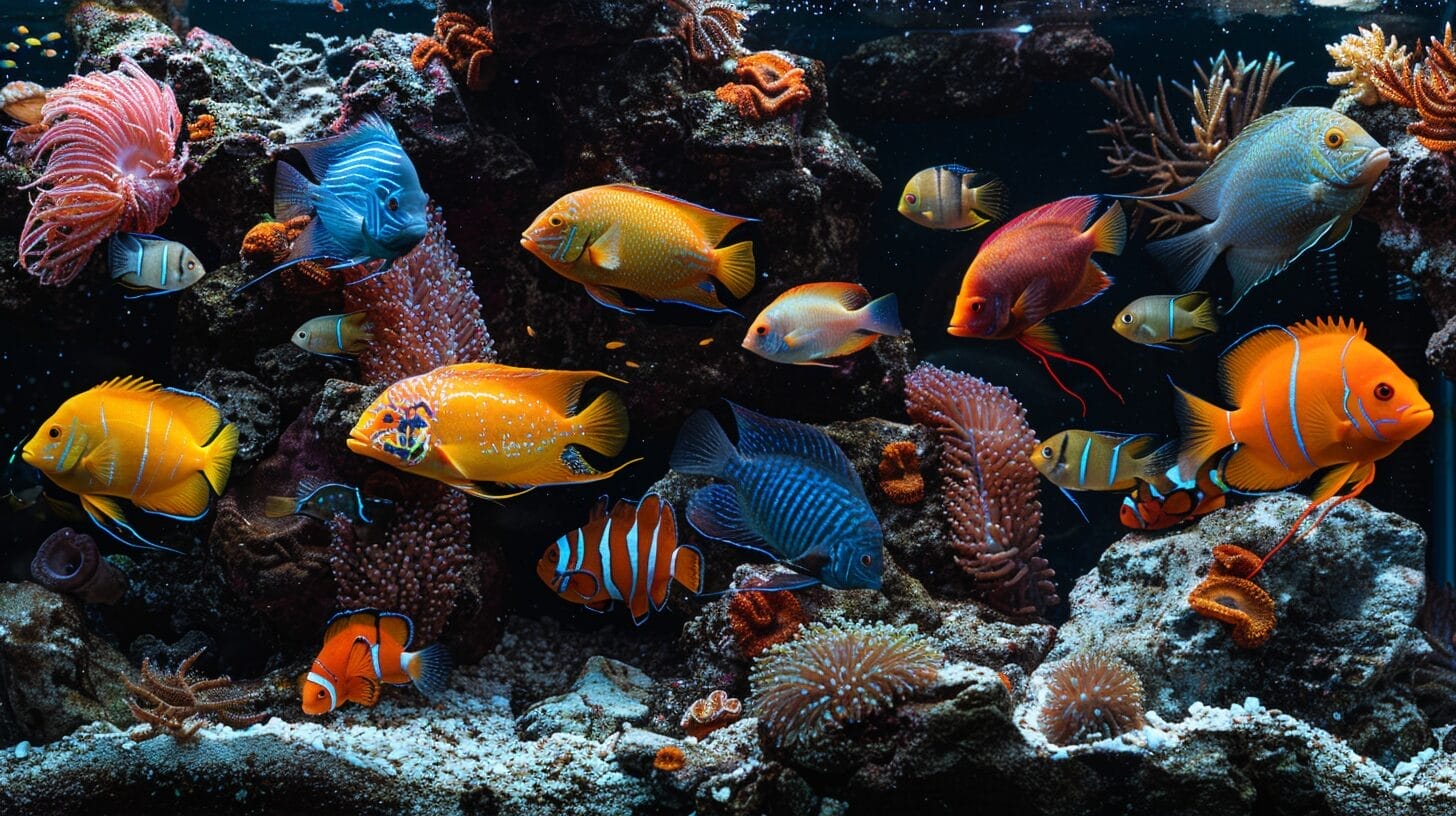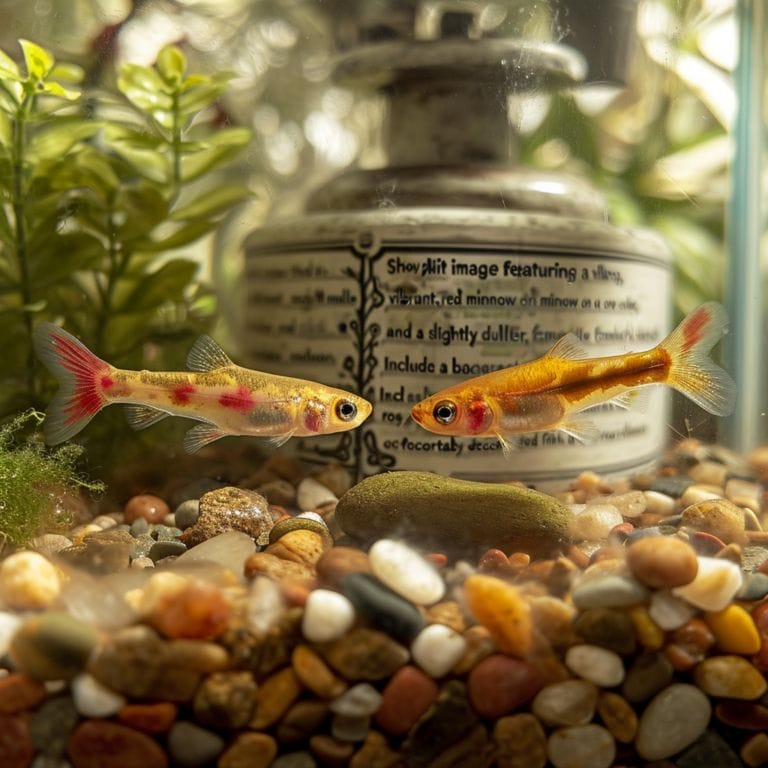Fish Life Expectancy: How Long Do Fish Live as Pets?
Curious about fish life expectancy? Wonder no more! Understanding how long fish live as pets can shape your aquarium decisions. From tiny guppies to majestic bettas, each species boasts a unique lifespan. Factors like habitat quality, diet, and genetics influence their longevity.
Dive into this fascinating realm to ensure your aquatic companions thrive for years to come. Discover the secrets behind their underwater world and embark on a fulfilling aquatic journey.
Key Takeaways
- Tank conditions impact lifespan significantly.
- Proper water quality, temperature, and filtration are vital.
- Balanced and nutritious diet is crucial for longevity.
- Regular tank maintenance and water changes are essential.
- Disease prevention measures play a key role in extending lifespan.
Understanding Fish Life Expectancy: Factors that Influence Lifespan

When considering fish life expectancy, the factors that influence lifespan are important to understand. For aquarium fish, lifespan can be greatly impacted by environmental factors and diet. It’s vital to maintain proper water quality, temperature, and filtration to support the health and longevity of our fish. Poor tank conditions can lead to stress, disease, and ultimately, a shortened lifespan for our aquatic pets.
In addition to tank conditions, the diet of aquarium fish is another critical factor in determining their lifespan. Providing a balanced and nutritious diet is essential for their overall health and well-being. Fish need a variety of foods to thrive, including flakes, pellets, live or frozen foods, and even vegetables for certain species. A poor diet lacking essential nutrients can weaken their immune system and make them more susceptible to illnesses, reducing their lifespan.
Choosing the Right Pet Fish: Species with Notable Lifespans

Exploring fish species with notable lifespans can guide us in selecting the right pet fish for our homes. Some species stand out for their impressive lifespans. Here are three species known for their extended life expectancy:
- Goldfish: Goldfish are renowned for their potential to live for decades when well cared for. With proper tank conditions and nutrition, these beautiful fish can be lifelong companions.
- Molly: Mollies are peaceful fish that can thrive for several years in a well-maintained aquarium environment, making them a popular choice among fish enthusiasts.
- Clown Loach: Clown Loaches are known for their vibrant colors and can live for over a decade with the right care. These active and social fish can bring joy to your tank for many years to come.
Care Practices to Help Extend Fish Lifespan

To enhance the longevity of your pet fish, consistent and thorough tank maintenance is essential. Keeping the fish tank clean and properly filtered helps maintain good water quality, important for the health of your fish.
Regular water changes, filter cleanings, and monitoring of water parameters such as pH and ammonia levels are essential practices. Additionally, providing your fish with a balanced diet is key to their overall well-being. Feed them a variety of high-quality foods suitable for their species, ensuring they receive proper nutrition.
Proper care also involves disease prevention measures. Conduct routine health checks to spot any signs of illness early, quarantine new fish before introducing them to the main tank, and avoid overcrowding to minimize stress.
Common Challenges in Keeping Fish and How to Overcome Them

As fish owners, we often encounter common challenges that can impact the health and longevity of our aquatic pets, requiring proactive measures to address them.
Here are some key challenges in keeping fish and how to tackle them:
- Maintaining a Healthy Tank Environment: Poor water quality, incorrect temperature, and inadequate filtration can lead to stress and illness in fish. Regular water testing, proper temperature regulation, and routine tank maintenance can help establish a suitable habitat for your fish.
- Dealing with Common Illnesses: Fish are susceptible to diseases like fin rot, ich, and swim bladder issues. To prevent these illnesses from affecting your fish’s lifespan, it’s crucial to quarantine new fish before introducing them to your tank, provide a balanced diet, and promptly treat any signs of illness.
- Overcoming Issues with Fish Compatibility: Some fish species may exhibit aggressive behavior towards others, leading to bullying and stress. Researching fish compatibility before adding new species to your tank and providing adequate hiding spots can help prevent conflicts and ensure a harmonious tank environment for all inhabitants.
Can Using Liquid Fertilizer Affect the Life Expectancy of Fish in an Aquarium?
Using the best aquarium liquid fertilizer can potentially impact the life expectancy of fish in an aquarium. The chemicals and nutrients introduced into the water can create imbalances, affecting the overall health of the aquatic ecosystem. It is crucial to carefully monitor and regulate the use of liquid fertilizers to ensure the well-being of the fish.
Making the Most of Your Fish’s Lifespan: Appreciating and Maximizing Their Life

Appreciating and maximizing your fish’s lifespan involves creating a nurturing environment and forming a strong bond with your aquatic companions. To enhance the quality of life for your pet fish, it’s essential to provide them with a well-maintained tank, suitable water conditions, and a balanced diet. Regular tank cleanings and water quality checks contribute to their overall health and happiness, potentially extending their lifespan.
Bonding with your fish is a rewarding experience that can deepen your connection with these fascinating creatures. Spending time observing their behavior, interacting with them during feeding times, and even training them to perform simple tricks can strengthen the bond between you and your fish. This bond not only enriches your life but also positively impacts the well-being of your aquatic friends.
Conclusion
To sum up, comprehending the factors that impact fish life expectancy, selecting the appropriate species, practicing adequate care, and surmounting common challenges are all crucial in maximizing your fish’s lifespan.
By valuing and taking the required steps to guarantee the well-being of your pet fish, you can establish a flourishing environment for them to live a long and healthy life as part of your family.
Frequently Asked Questions
What is the average life expectancy of fish kept as pets?
The average life expectancy of fish kept as pets is typically around three to five years, although this can vary depending on the species.
Can some fish live longer than others as pets?
Yes, some fish species have the potential to live longer than average, with certain species such as pacus or larger fish living up to 10 years or more with proper care.
Are there specific fish that have shorter lifespans as pets?
Yes, certain fish like killifish or guppies are known for having shorter lifespans compared to other species, typically around two to three years.
How can I improve the life expectancy of my pet fish?
To improve the life expectancy of your pet fish, provide a suitable environment with good water quality, proper nutrition, and regular monitoring of parameters such as pH levels and water temperature.
Should I seek advice from a veterinarian for my fish’s health and longevity?
If you notice any concerning signs or behaviors in your pet fish, it is recommended to consult a veterinarian with experience in treating fish to ensure their health and longevity.






